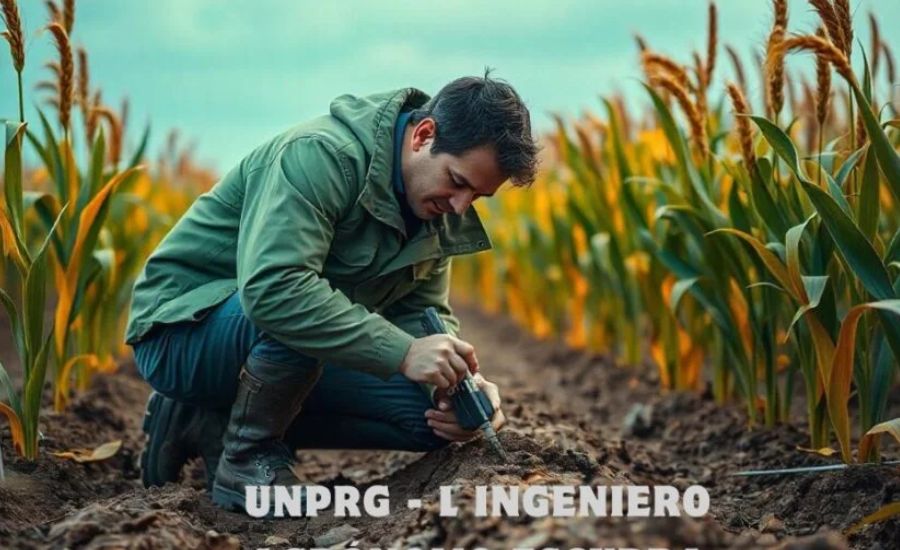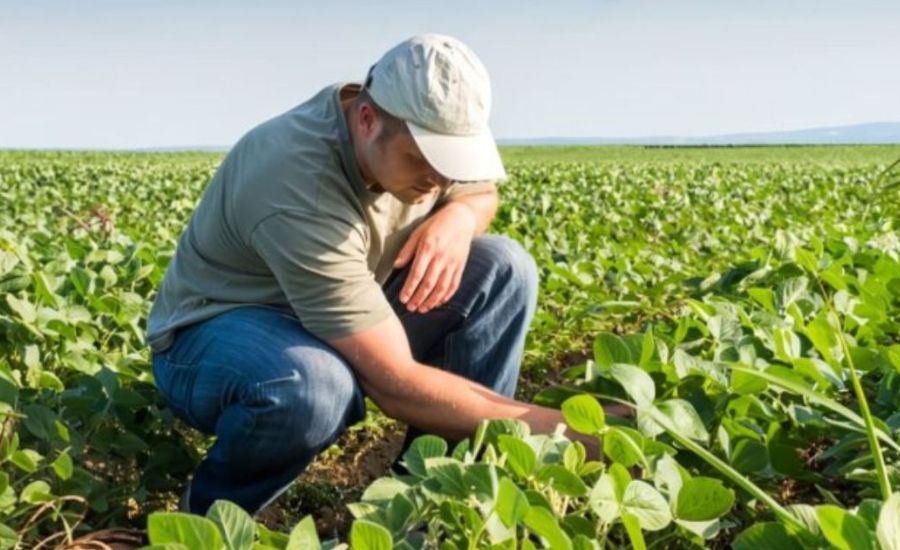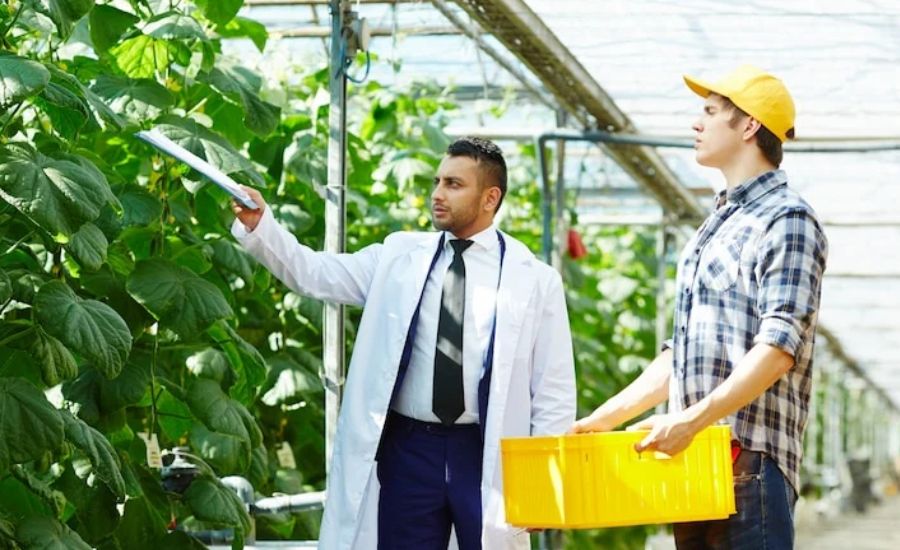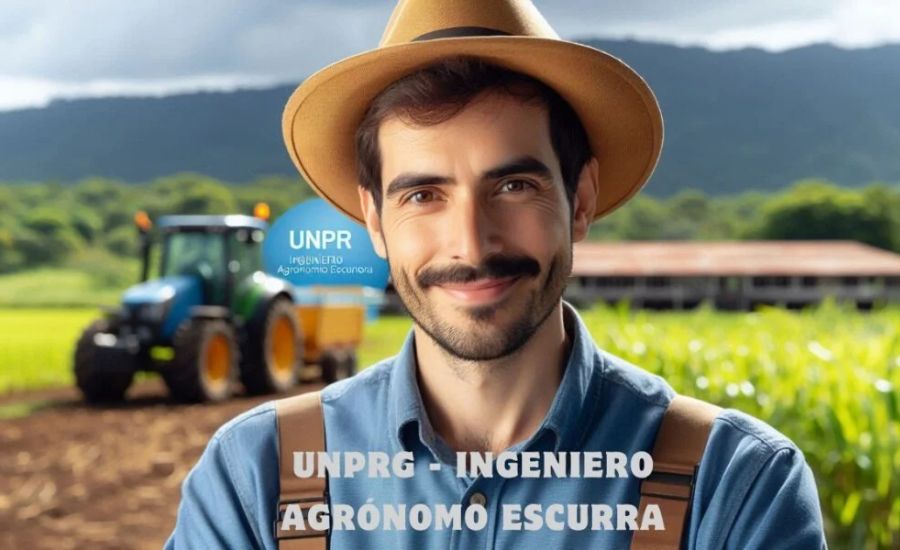Unprg – Ingeniero Agrónomo Escurra Clso, Program, Genesis & More
Introduction to Unprg – Ingeniero Agrónomo Escurra Clso
In the lush, vibrant landscapes of Northern Peru, one individual has emerged as a beacon of innovation and education in agronomy: Ingeniero Agrónomo Escurra Clso. A highly respected graduate and professor at the Universidad Nacional Pedro Ruiz Gallo (UNPRG), his journey transcends personal accomplishment; it significantly impacts the agricultural practices and paradigms of the region.
Through his dedication and expertise, he has become a transformative figure, inspiring both students and local farmers to embrace new methodologies and technologies that enhance productivity and sustainability in agriculture.
What is UNPRG’s Agronomy Program?
The Universidad Nacional Pedro Ruiz Gallo (UNPRG) offers a comprehensive Agronomy Engineering program tailored to develop skilled professionals in the management and sustainable development of agricultural resources. This program spans 10 academic semesters, during which students acquire in-depth knowledge in key areas such as plant biology, soil management, and sustainable agricultural practices.
Graduates of this program, often recognized as Ingenieros Agrónomos, are well-equipped to manage agricultural systems effectively. They play a vital role in enhancing crop yields, addressing environmental challenges, and promoting food security in their communities.
The Role of Ingeniero Agrónomo
An Ingeniero Agrónomo is a highly specialized professional trained to design, manage, and implement agricultural projects that balance productivity with sustainability. These experts have a profound understanding of soil science, plant biology, pest management, and sustainable farming techniques.
At UNPRG, the agronomy program prepares students for leadership positions in various sectors, including farm management, research on plant genetics, and the integration of innovative technologies to optimize agricultural outcomes. An Ingeniero Agrónomo oversees all aspects of agricultural systems—from planting and cultivation to harvesting—ensuring that operations are both economically viable and environmentally sustainable.
Genesis Of A Green Visionary: The Early Years of Ingeniero Agrónomo Escurra

Ingeniero Agrónomo Escurra’s journey began in the rural outskirts of Northern Peru, where agriculture was not just a profession but a vital way of life.
Growing up in a family of farmers, he developed a deep understanding of the practical challenges and natural rhythms inherent to farming from a young age. This immersive experience fostered his passion for agriculture and led him to enroll at the Universidad Nacional Pedro Ruiz Gallo (UNPRG), setting the stage for a remarkable transformation from student to expert in agronomic sciences.
Cultivating Excellence: From Student to Master Agronomist at UNPRG
During his time at UNPRG, Escurra quickly emerged as a standout student, thanks to his exceptional academic and practical skills. His unwavering dedication to learning and innovation was evident in his thorough approach to both theoretical and applied agronomy. Not only did he excel academically, but he also made significant contributions to the university’s agricultural research initiatives.
This proactive engagement paved the way for him to become a respected academic figure and a cherished mentor to aspiring agronomists, inspiring future generations to pursue excellence in the field.
Starting the Academic Journey
Ingeniero Agrónomo Escurra’s journey commenced in the fertile landscapes of Peru, where his early experiences with farming sparked a lifelong passion for agriculture. Motivated by a desire to enhance farming techniques and boost crop yields, Escurra enrolled at the Universidad Nacional Pedro Ruiz Gallo (UNPRG) with the ambition to modernize traditional agricultural practices through innovative science. His initial years at the university were characterized by a deep-seated curiosity and a relentless quest for knowledge, laying the groundwork for his future contributions to the field.
Growth Through Learning: Academic Endeavors and Challenges
At UNPRG, Escurra dedicated himself to achieving agronomic excellence. He engaged deeply with complex topics, including soil science, plant physiology, and sustainable farming practices. His commitment to academic rigor was complemented by a strong enthusiasm for fieldwork, where he applied theoretical knowledge to address practical challenges. Escurra developed a keen interest in sustainable agriculture, recognizing its crucial role in ensuring the long-term viability of farming.
Cultivating Expertise: Research and Innovation
Escurra’s evolution from student to master agronomist was significantly influenced by his research involvement. He participated in groundbreaking projects aimed at enhancing crop resilience to environmental stressors. His research was not merely academic; it was driven by a genuine mission to address real-world challenges faced by local farmers. This phase of intensive research and practical application sharpened his skills and enriched his understanding of agronomy, solidifying his role as a leader in the field.
Sustainability
One of the primary objectives of the Ingeniero Agrónomo is to develop sustainable farming practices that prioritize environmental protection. These professionals work to mitigate the adverse impacts of agriculture by implementing eco-friendly techniques such as crop rotation, organic farming, and soil conservation.
By promoting these methods, they aim to create a more sustainable agricultural ecosystem that preserves natural resources for future generations.
Farm Management
Agronomy engineers are adept at managing agricultural operations to ensure they run smoothly and efficiently while maximizing productivity. Their expertise encompasses logistics, resource allocation, and financial planning—key components for successful farm management.
By applying these skills, they help farmers optimize their operations, resulting in increased yields and reduced costs.
Biotechnology
The field of biotechnology is transforming the agricultural landscape, and UNPRG agronomists are leading this charge. They leverage advanced biotechnological innovations to enhance crop yields, improve pest resistance, and develop more nutritious food products.
By integrating cutting-edge technology into farming practices, these professionals contribute to creating a more efficient and resilient agricultural sector.
The Importance Of Sustainable Agriculture

Sustainability is central to the mission of Ingeniero Agrónomo Escurra Clso and the role of agronomists in general. Sustainable agriculture is crucial for maintaining natural resources while also enhancing the quality of life for local communities. By employing practices such as agroecology and biodiversity management, agronomists develop farming systems that are not only productive but also ecologically balanced.
As the global population continues to grow, so does the demand for food, making the expertise of UNPRG’s Ingeniero Agrónomo Escurra Clso increasingly essential. These professionals play a pivotal role in bridging the gap between heightened food production and environmental sustainability. Their efforts are vital in addressing the challenges posed by climate change and in building resilient food systems that can thrive for future generations.
Career Opportunities For Ingeniero Agrónomo Graduates
Graduates of the agronomy program at UNPRG, including Ingeniero Agrónomo Escurra Clso, have access to a diverse range of career opportunities in both the public and private sectors. They can work in various settings, from government agricultural agencies to private farms. Common career paths include:
- Agricultural Consultant: These professionals advise farmers on best practices in crop management, pest control, and sustainable farming methods.
- Farm Manager: Responsible for overseeing the daily operations of agricultural enterprises, farm managers focus on ensuring efficiency and maximizing profitability.
- Research Scientist: Engaging in research activities, these scientists develop new farming techniques, improve crop varieties, and address pressing agricultural challenges.
Nurturing Growth: Contributions To Agricultural Research At UNPRG
Ingeniero Agrónomo Escurra has played a pivotal role in enhancing agricultural research at Universidad Nacional Pedro Ruiz Gallo (UNPRG). His primary focus on sustainable farming practices and crop resilience is especially significant in a region frequently affected by climate variability.
Under Escurra’s leadership, the university’s research initiatives achieved remarkable advancements, including the development of pest-resistant crops and innovative water-efficient farming techniques. These contributions have made a lasting impact on local agricultural communities, empowering them to adapt to changing environmental conditions.
Green Revolution: Ingeniero Agrónomo Escurra’s Impact & Innovations
The influence of Escurra at UNPRG has been transformative. He spearheaded numerous initiatives that merged cutting-edge agricultural technologies with traditional farming methods, enhancing both sustainability and efficiency. His work was crucial in establishing the university as a premier center for agronomic studies in Peru, significantly shaping agricultural policies and practices at both the national and regional levels. Through these initiatives, Escurra has fostered a culture of innovation that continues to benefit the agricultural sector.
Planting the Future: Career Opportunities in UNPRG’s Agronomy Programs
The agronomy programs at UNPRG, enriched by the significant contributions of Ingeniero Agrónomo Escurra, provide students with a wealth of career opportunities. Graduates emerge well-equipped to address the complexities of modern agriculture, whether in advanced research roles, agritech development, or the implementation of sustainable farming practices. The curriculum is thoughtfully designed to adapt to evolving climatic challenges, ensuring that students are prepared to lead the next green revolution and make a positive impact in the agricultural field.
Challenges Faced By Agronomists Today
The role of Ingeniero Agrónomo is increasingly vital, yet it comes with a set of formidable challenges. Agronomists must navigate the impacts of climate change, water scarcity, and land degradation, which present significant risks to agricultural productivity. To address these pressing issues, agronomists are required to continuously adapt and innovate, leveraging technology and scientific research to develop sustainable solutions.
Additionally, the rising demand for organic and environmentally friendly products compels agronomists to find effective methods for producing food that not only meets consumer expectations but also ensures economic viability. Balancing these demands requires a keen understanding of both market trends and sustainable practices.
The Future Of Agronomy In A Changing World

As the agricultural sector undergoes transformation driven by technological advancements and environmental challenges, the role of agronomists, such as Ingeniero Agrónomo Escurra, becomes even more crucial. The next generation of agronomists will need to embrace innovations such as precision farming, genetic engineering, and smart agriculture technologies. These professionals will be responsible for integrating these modern approaches while ensuring a harmonious balance between productivity and sustainability.
Their work will be essential in ensuring that agriculture can thrive amidst global challenges like climate change and food insecurity, ultimately contributing to a more secure and sustainable food system for the future.
Conclusion
The legacy of Ingeniero Agrónomo Escurra exemplifies the transformative impact of dedicated education and research in the field of agriculture. As we gaze into the future, the principles he championed—innovation, sustainability, and resilience—continue to inspire and guide emerging generations of agronomists. His enduring influence ensures that the Universidad Nacional Pedro Ruiz Gallo (UNPRG) remains a leader in agricultural education, nurturing the next wave of agronomists who will shape a more sustainable and productive agricultural landscape. Through his contributions, Escurra has paved the way for a future where agronomic practices are not only effective but also environmentally responsible, fostering a new era of agricultural excellence.
FAQs
1. Who is Ingeniero Agrónomo Escurra Clso?
Ingeniero Agrónomo Escurra Clso is a respected graduate and professor at the Universidad Nacional Pedro Ruiz Gallo (UNPRG) in Northern Peru. He is known for his innovative contributions to agronomy, particularly in sustainable farming practices and agricultural research.
2. What does the agronomy program at UNPRG entail?
The agronomy program at UNPRG spans 10 academic semesters, offering comprehensive training in plant biology, soil management, and sustainable agricultural practices. It aims to prepare graduates to effectively manage agricultural systems and address environmental challenges.
3. What career opportunities are available for graduates of the UNPRG agronomy program?
Graduates can pursue various career paths, including roles as agricultural consultants, farm managers, and research scientists. They may work in both public and private sectors, contributing to food security and sustainable agricultural practices.
4. How does Ingeniero Agrónomo Escurra contribute to agricultural research?
Escurra has been instrumental in advancing agricultural research at UNPRG, focusing on sustainable farming techniques and crop resilience. His work has led to significant advancements in pest-resistant crops and innovative farming practices.
5. What challenges do agronomists face today?
Agronomists encounter challenges such as climate change, water scarcity, and land degradation. They must adapt and innovate continuously to address these issues while meeting the growing demand for sustainable and organic food products.
6. Why is sustainability important in agriculture?
Sustainability is vital for preserving natural resources, enhancing food security, and improving the quality of life in local communities. Sustainable practices ensure that farming can be productive while protecting the environment for future generations.
Interesting Facts
- Historical Context: The agronomy program at UNPRG was established to address the unique agricultural challenges faced by Northern Peru, a region rich in biodiversity but vulnerable to climate fluctuations.
- Innovative Techniques: Ingeniero Agrónomo Escurra is recognized for merging modern agricultural technologies with traditional farming methods, enhancing both sustainability and productivity in the region.
- Community Impact: The research initiatives led by Escurra have empowered local farmers, providing them with the tools and knowledge to adapt to changing environmental conditions effectively.
- Global Relevance: The expertise of UNPRG’s agronomists is increasingly vital in the context of global food security, as they develop strategies to meet the needs of a growing population while conserving resources.
- Future Focus: The agronomy program continuously evolves, incorporating new technologies such as precision farming and genetic engineering, preparing students to tackle the challenges of modern agriculture.
- Pioneering Spirit: The work of Ingeniero Agrónomo Escurra has established UNPRG as a center for agronomic excellence in Peru, influencing agricultural policies and practices at both national and regional levels.
Read More Information About Gardning At discoverparadox
